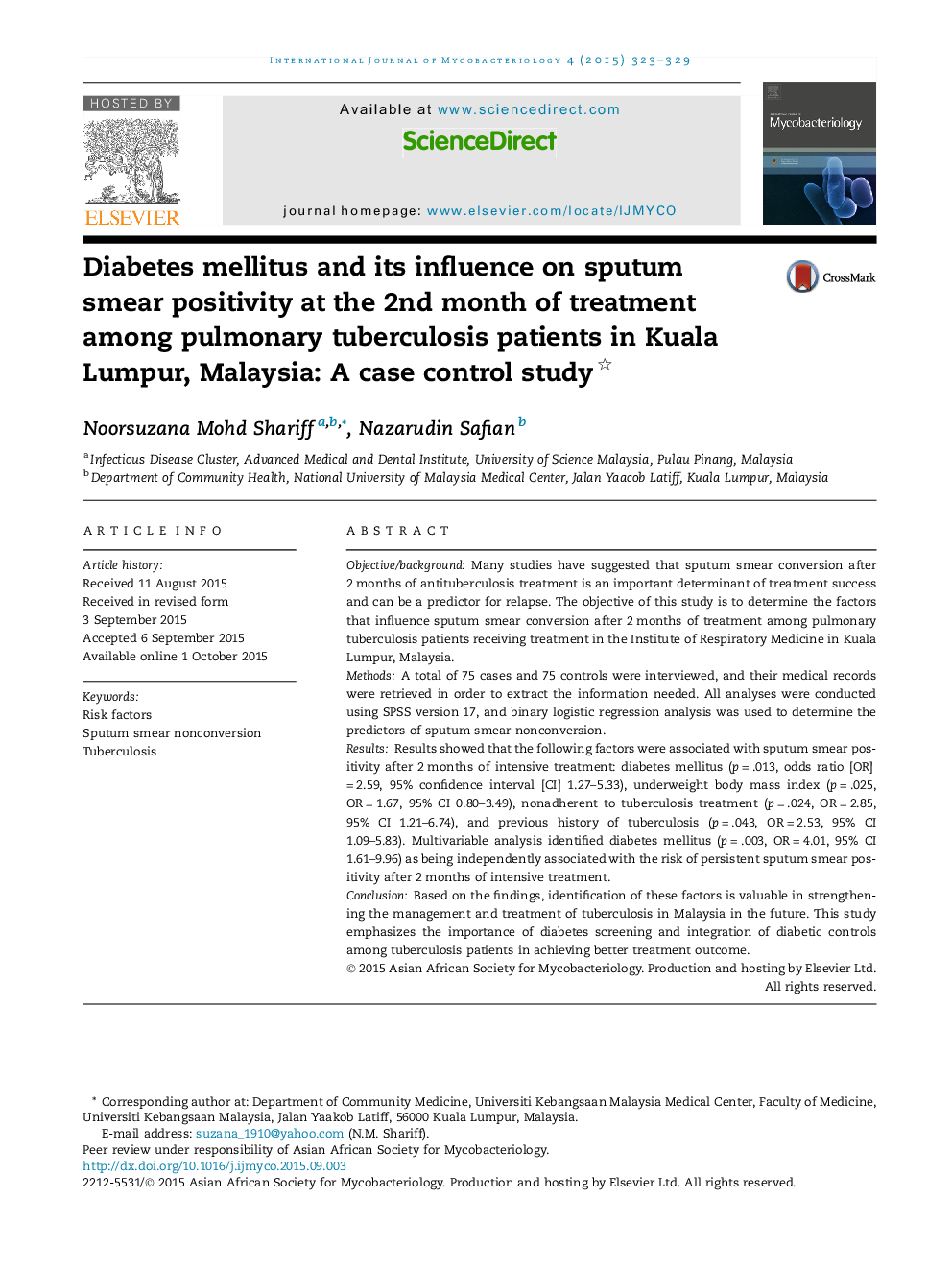| Article ID | Journal | Published Year | Pages | File Type |
|---|---|---|---|---|
| 3404958 | International Journal of Mycobacteriology | 2015 | 7 Pages |
Objective/backgroundMany studies have suggested that sputum smear conversion after 2 months of antituberculosis treatment is an important determinant of treatment success and can be a predictor for relapse. The objective of this study is to determine the factors that influence sputum smear conversion after 2 months of treatment among pulmonary tuberculosis patients receiving treatment in the Institute of Respiratory Medicine in Kuala Lumpur, Malaysia.MethodsA total of 75 cases and 75 controls were interviewed, and their medical records were retrieved in order to extract the information needed. All analyses were conducted using SPSS version 17, and binary logistic regression analysis was used to determine the predictors of sputum smear nonconversion.ResultsResults showed that the following factors were associated with sputum smear positivity after 2 months of intensive treatment: diabetes mellitus (p = .013, odds ratio [OR] = 2.59, 95% confidence interval [CI] 1.27–5.33), underweight body mass index (p = .025, OR = 1.67, 95% CI 0.80–3.49), nonadherent to tuberculosis treatment (p = .024, OR = 2.85, 95% CI 1.21–6.74), and previous history of tuberculosis (p = .043, OR = 2.53, 95% CI 1.09–5.83). Multivariable analysis identified diabetes mellitus (p = .003, OR = 4.01, 95% CI 1.61–9.96) as being independently associated with the risk of persistent sputum smear positivity after 2 months of intensive treatment.ConclusionBased on the findings, identification of these factors is valuable in strengthening the management and treatment of tuberculosis in Malaysia in the future. This study emphasizes the importance of diabetes screening and integration of diabetic controls among tuberculosis patients in achieving better treatment outcome.
